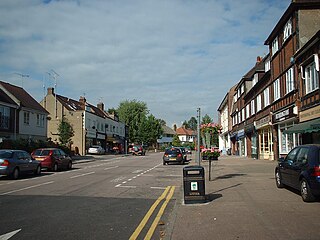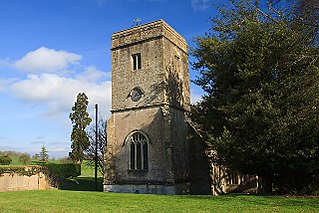William Whitaker Maitland (1794-1861) was a British landowner, and High Sheriff of Essex in 1836.
The High Sheriff of Essex was an ancient Sheriff title originating in the time of the Angles, not long after the invasion of the Kingdom of England, which was in existence for around a thousand years. On 1 April 1974, under the provisions of the Local Government Act 1972, the title of Sheriff of Essex was retitled High Sheriff of Essex. The High Shrievalties are the oldest secular titles under the Crown in England and Wales, their purpose being to represent the monarch at a local level, historically in the shires.
He was the son of John Maitland, politician and landowner.
John Maitland, was an English politician. He served as the Member of Parliament (MP) for Chippenham from 1806 to 1812 and 1817 to 1818.
He inherited Woodford Hall, a large house in Woodford, Essex, with 50 acres of land adjacent to Epping Forest, [1] and the nearby Loughton Hall and their manors from his father.
Woodford Hall was a large house in Woodford, Essex, with 50 acres of land adjacent to Epping Forest.

Woodford is a town in North East London in the London Borough of Redbridge. It is divided into the neighbourhoods of Woodford Green, Woodford Bridge, Woodford Wells, South Woodford and Monkhams. The town is situated 9.5 miles (15.3 km) northeast of Charing Cross. It is part of the traditional county of Essex, but for administrative purposes has been part of Greater London since 1965, following the passing of the London Government Act 1963.

Epping Forest is a 2,400-hectare (5,900-acre) area of ancient woodland between Epping in Essex to the north, and Forest Gate in Greater London to the south, straddling the border between London and Essex. It is a former royal forest, and is managed by the City of London Corporation. An area of 1,728 hectares is a Site of Special Scientific Interest and a Special Area of Conservation. It gives its name to the Epping Forest local government district, which covers part of it.
In 1851, he owned 1,120 acres in Loughton, let out as ten separate farms. [2]

Loughton is a town and civil parish in the Epping Forest District of Essex and, for statistical purposes, part of the metropolitan area of London and the Greater London Urban Area. It is located between 11 and 13 miles (21 km) north east of Charing Cross in London, south of the M25 and west of the M11 motorway and has boundaries with Chingford, Waltham Abbey, Theydon Bois, Chigwell and Buckhurst Hill. Loughton includes three conservation areas and there are 56 listed buildings in the town, together with a further 50 that are locally listed.
He leased Woodford Hall to William Cox, and in 1840, to William Morris, father of William Morris the textile designer, poet, and socialist activist, then aged 6. [1]

William Morris was a British textile designer, poet, novelist, translator, and socialist activist associated with the British Arts and Crafts Movement. He was a major contributor to the revival of traditional British textile arts and methods of production. His literary contributions helped to establish the modern fantasy genre, while he played a significant role propagating the early socialist movement in Britain.
His third son, the Reverend John Whitaker Maitland, was the rector of Loughton, and lord of the manor. [3]
John Whitaker Maitland (1831-1909) was the rector of Loughton, lord of the manor, and owner of Loughton Hall.








